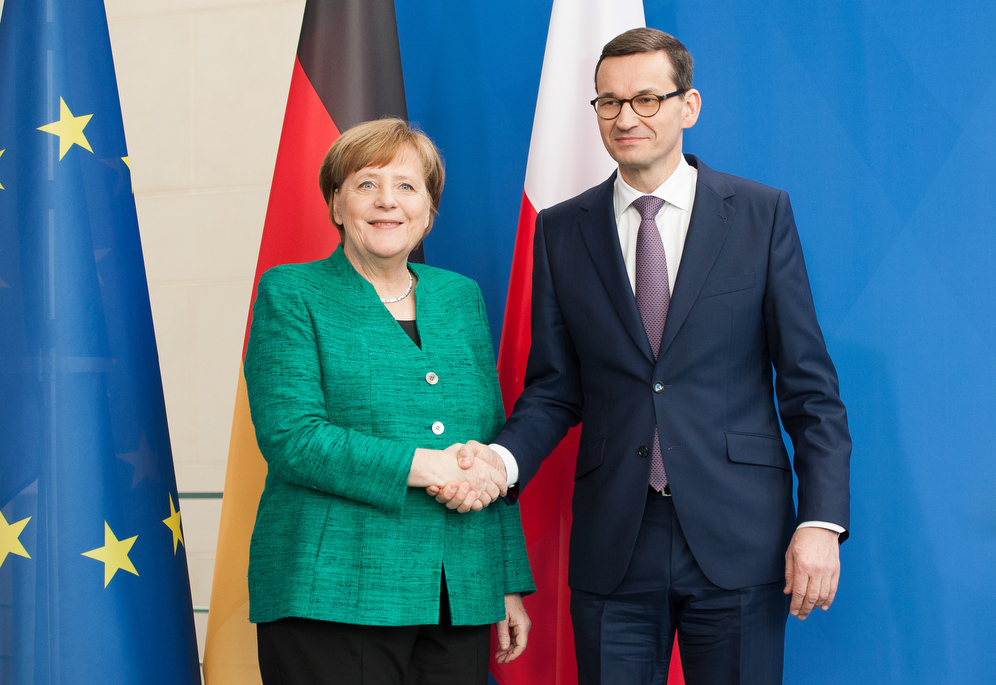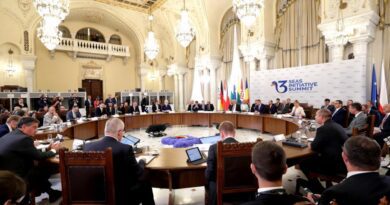PiS and the EU – an unreciprocated love

Contrary to its boisterous rhetoric, PiS is the most pro-EU group that has ruled in Poland since 1989. This may be a paradox of Polish politics, but no other government has done so much for European integration.
Jan Fiedorczuk
“I have no doubts that for Jarosław Kaczyński leaving the European Union is part of his strategic thinking” – Donald Tusk argued recently. There have been hundreds of similar statements on the part of the opposition in recent years. It is worth recalling that no referendum or even a special parliamentary majority are needed to leave the EU structures. A simple majority in the Polish Parliament and then notification of the President are enough to conduct a polexit. PiS had six long years to carry out this procedure. Since it has not decided on it, since it denies such ideas on every possible occasion, it should be assumed that no one is pursuing any polexit.
In fact, Jarosław Kaczyński always strongly defended accusations against associating him with Polish eurosceptics. If we look at the bare facts and detach them from the emotions accompanying the current politics, it will turn out that no group in the history of the Third Polish Republic can claim such pro-EU achievements as Law and Justice.
PRO-EU PARTY
Already at the very moment of Poland’s accession to the European Union, despite loudly formulated reservations and doubts, when the time came for a decision, the Kaczyński brothers supported Poland’’ accession. It was no different a few years later with the Treaty of Lisbon reforming the European Union. The Treaty gave the Union many new powers and drastically advanced the integration process. The new agreement was a de facto repetition of the “Constitution for Europe”, from which the provision explicitly referring to the primacy of EU law over national law was removed. At that time as well, PiS raised many objections to the new agreement, despite ultimately supporting the controversial solutions. Let us recall that the document was already ratified during the rule of the PO-PSL coalition, but it was PiS that depended on its further fate, because a two-thirds majority of votes was required for the parliament to adopt the act authorizing the ratification of the treaty. It was the PiS deputies who delivered these missing votes.
The third great leap towards European integration was made by PiS in December 2020, when Prime Minister Morawiecki agreed to the decisions of the European Summit on the Reconstruction Fund. At that time, the Polish government not only gave the green light to the so-called conditionality mechanism (funds linked to the principle of “the rule of law”), but also agreed to the communitarization of the debt from which European funds are to be covered, as well as the levying of taxes by the Union on citizens of the Member States. At the same time, the Polish Prime Minister accepted the EU climate policy, the main demand of which was to achieve climate neutrality. Such a contribution to the idea of a united Europe was matched by neither Donald Tusk, Aleksander Kwasniewski, nor Leszek Miller.
Prime Minister Morawiecki, convinced at the time that he had achieved a historic success, assured that there was no question of linking the funds with the rule of law principle, referring to the arrangements of the European Council. The problem is that the CJEU had already indicated in the past that such arrangements are not binding. The current crossing of Poland with the National Reconstruction Plan only confirms this. No wonder that supporters of the idea of liquidating sovereign nation states praised the Prime Minister, while chastening Poland, which from the very beginning pointed to the dangers associated with the Reconstruction Fund. – Minister Ziobro says he will vote against, because the Fund constitutes a federalization of Europe, a step towards a European superstate. I replied to Mr. Ziobro: You are not mistaken, Minister. This is a deepening of European integration, said Adrian Zandberg, an MP of the Left in the Sejm during the debate on the National Reconstruction Plan.
When it comes to real decisions made by the rulers, it is hard not to agree with Marek Sawicki from PSL, who said that “PiS is the most pro-EU camp in the last 30 years”.
If we follow Jarosław Kaczyński’s statements, we can easily see that for years he has been in favor of a deepening integration in the continent, which is reflected, for example, in his enthusiastic attitude towards the idea of the EU’s international subjectivity and the creation of a European army.
– I believe that we should strive for the European Union to become a real subject of international politics also in the military sphere – said the PiS leader in a 2016 interview with Rzeczpospolita newspaper. At that time, Kaczyński argued that member states should provide 2% of their GDP for a European army that would be at the disposal of an EU president elected for a “long term”. – Such a president should have strictly defined, but still strong powers, for example, to supervise the EU’s foreign policy towards such large entities as Russia, China, the United States, India, of course, while maintaining the foreign policy of individual countries, he said, adding that “Europe should be superpower”.
For years, Kaczyński has been in favor of a Europe of Homelands the imperial ambitions of which would be roughly limited to geopolitical challenges. The problem is that nobody in Europe wants the EU proposed by PiS. For Eurosceptics, this vision still means the usurpation of power by Brussels, while for federalists it is an insufficient postulate – their dream is to build a single empire, and Kaczyński’s proposal would de facto constitute a step backwards.
SOBERING UP?
Since 2015, the current government successfully resisted EU pressure only once – right at the beginning of their rule, when the matter of accepting immigrants appeared on task list. Prime Minister Beata Szydło made a hard veto on this matter and in fact she could not be broken. Since then, PiS has been regularly yielding to Brussels, which only enrages the EU elite. By initiating a dispute and then conceding, the Polish government gives the EU room for maneuver to expand its powers outside the Treaty. This was the case with the Supreme Court, at last December’s summit when there were threats of a veto, and again now with the Disciplinary Chamber. It would be logical either not to start new conflicts (if it was decided that Poland did not possess the capacity to win them) and not to give Brussels an excuse to interfere in Polish politics, or on the contrary – to openly stand up to the EU imperialists, refrain from financial blackmail, and defend Polish sovereignty. Meanwhile, PiS, intentionally or not, invites the EU to interfere in Polish domestic politics. It is a treat for the EU elite, because with the tactic of fait accompli, they can sanction their powers outside the treaty.
PiS eagerly enters disputes with Brussels to play with the emotions of voters. However, Kaczyński himself was never Eurosceptic. His pro-EU attitude seems to be conditioned by his generation. Striving for the West was a political axiom for the generation of the Solidarity movement, which is why the statements of the ruling party echo with a genuine pro-EU note. The problem is that it is a one-sided and unreciprocated feeling – the EU does not want Kaczynski’s Poland, because the only Poland it accepts is one that is disinclined toward its imperial dreams.
The arrogance and pride of the EU elite over the years did not agitatate the pro-EU policy of PiS, however, in recent weeks, when the entire National Reconstruction Plan has been put into question, we can observe an evident tightening of the approach. In the statements of PiS politicians and their peers, there was an evident presence of eurosceptic notes that we had not heard before. “This is war”, wrote Jacek Saryusz-Wolski on Twitter, when the European Parliament adopted another resolution against Poland. Prime Minister Morawiecki struck a similar tone when, in an interview with the Financial Times, he indicated that the European Commission, could trigger a “World War III” by lynching Poland. In turn, a few weeks earlier, Marek Suski assured that Poland would cope with the “Brussels occupant”, and Ryszard Terlecki, the deputy speaker of the Polish Parliament, spoke a little less harshly, pointing out that “the British showed that the dictatorship of Brussels’ democracy did not suit them. They turned and left”.
Naturally, in PiS, no one talks about repeating the maneuver of the British, assuring that Polexit is only a lie of the political opposition. But between leaving the EU structures and further plunging into deeper integration and building a pan-European empire, as we have witnessed in recent years, there is a whole range of positions more or less pro-EU. The recent tightening of the course may be a sign of a sobering-up in the ruling ranks, who have thus far been rather thoughtless in their mainstream movement towards European integration. The basic question is: Is this sobering-up authentic and are we witnessing the birth of PiS Eurorealism or is it just another version of the game on Eurosceptic emotions? The dynamics of the dispute with the EU will soon force the rulers to reveal their true intentions to themselves.
This article was published in December 2021 in “Do Rzeczy” magazine.



